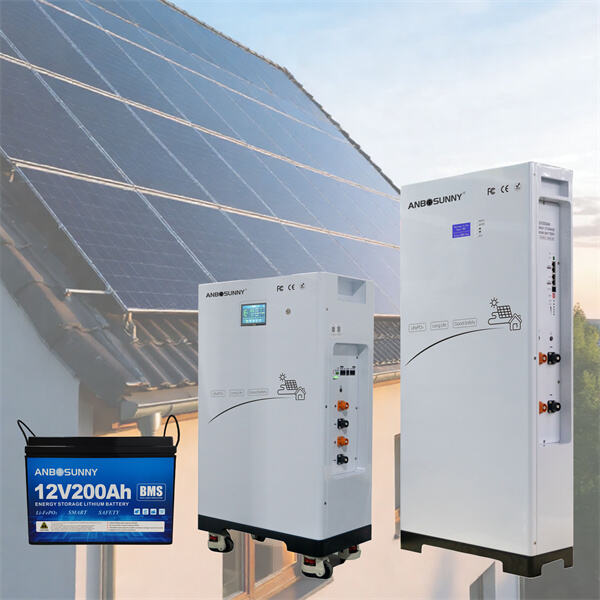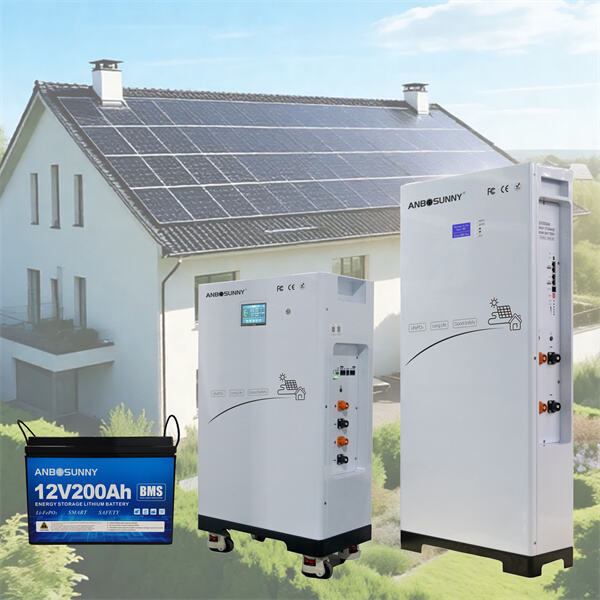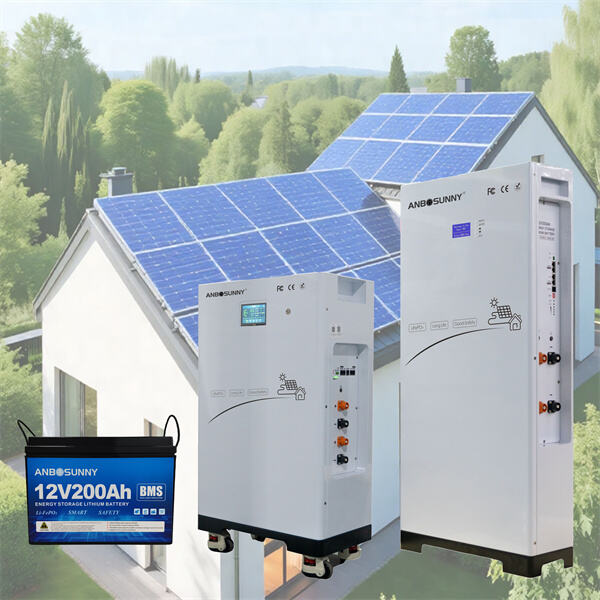En titt in i världen av hemligt batterienergilagring: det goda och det dåliga
Ett hemligt batteri möjliggör användning av sparad el på ett senare tillfälle, och denna lösning har funnit utrymme i hoppet om fler än någonsin individer när de dyker upp mer inom att hantera sin egen energiförbrukning. Enheterna bygger på moderna lithiumjonbatterier för att lagra energi till användning när den behövs mest, vanligen under de upptagna perioderna av elbegäran. Det finns många fördelar med hemliga batterilagringssystem från ekonomiska besparingar till miljömässiga fördelar. Dock är det viktigt att notera att dessa system inte bara har fördelar. I följande artikel ska vi ta en närmare titt på både fördelar och nackdelar vad gäller hemliga batterilagringssystem.
Att minska beroendet av det huvudsakliga elnätet är en av, om inte den största fördelen med att installera en hemlig batterienergilagring. Denna process skulle tillåta husägare att använda denna lagrade energi under spetsbelastningsperioder för att minska sitt beroende av nätet och därmed begränsa storleken på deras elräkning. Batterienergilagringssystem i hemmen fungerar också som en pålitlig reserv under strömavbrott eller systemavbrott, vilket ger husägare fortsatt leverans.
Hembatterier för energilagring sparar inte bara pengar för människor, utan har också en enormt positiv inverkan på miljön. Minskat bruk av fossila bränslen innebär en lägre kolutfällning för alla involverade och skapar mer utrymme i kampen mot klimatförändringarna. Dessutom är dessa system skalbara så att husägare kan öka sin lagringskapacitet efter behov.

Det bör dock kommas ihåg att hemmabatterisystem för energilagring är mycket dyra att installera och underhålla, ibland kostar de tusentals dollar eller till och med mer än 10 000 dollar. Medan detta pris inte blir så stor en hinder för personer i regioner med höga elpriser, är de som bor i billigare områden troliga att kämpa mer med affärsfallet.
På nedriven sidan ifrågasätter det hur effektiva dessa system är tack vare batterierna de använder. Det anses allmänt att många hemmabatterisystem för energilagring inte är 100% effektiva - de flesta verkar fungera på cirka 90 procent effektivitet - så om nätinteraktiva vattnastankar kan uppnå något bättre än detta tal, varför betala fem gånger mer bara för smart teknik? Naturligtvis ser detta ut som ingenting från början, men det är en stor energiförbrukning när det summeras över tid.

Att välja rätt lösning för hemligt batteri-energilagring kräver noggrann bedömning. För det första är det viktigt att veta hur mycket lagring du behöver för att lagra den energi som kommer att krävas av ditt hushåll och vilken ytterligare mängd kan sparas under perioder med låg användning på vissa dagar. Andra överväganden inkluderar batterisystemets effektivitet, livslängd och garanti, vanligtvis 10 år.
Det är också viktigt att kontrollera att Ningbo Anbo United Electric Appliance solenergibatterier för hemmet systemet du överväger ska fungera tillsammans med ditt nuvarande sol- eller vindkraftssystem. Samtidigt är vissa batterisystem utformade för att paras med specifika typer av förnybar energilösningar - vilket understryker hur avgörande det är att din valda lösning för framtida generationslagring integrerar sig smidigt och effektivt med sin aktuella partner.

I 2021 finns det så många olika erbjudanden för hemligt batterienergilagring att det snart blir ganska komplicerat, men bland de mest noterbart varumärkena på marknaden inkluderar några välkända namn. Denna lista omfattar produkter från rankerna av Tesla, LG Chem eller Enphase.
Tesla Powerwall: Belönad för sin integration med Teslas solsystem, erbjuder den högkapacitetsbatteriet (13,5 kWh) med kort livslängd en tioårs-garanti.
LG Chem RESU: Lagringskapacitet 3,6 kWh-12,8 kWh, med en standard LG-garanti i upp till tio år och kompatibel med olika förnybara energisystem.
Enphase Encharge: Entrium Energis Hemlagringsystem, energilagringsystemet kan leverera upp till 3,4 kWh per batteri och är skalbart med totalt tio batterier när de används i kombination.
Det finns många variabler att ta hänsyn till – kostnaden för el i din region, hur mycket du använder och även var allt pengarna går åt för att hålla ett bygge igång. Ändå kan dessa system som helhet ge betydande kostnadsbesparingar på lång sikt.
A homeNingbo Anbo United Electric Appliance solarbatterier för hushåll ett system kan spara tusentals dollar per år, särskilt i områden med högre elavgifter där kunder kan använda lagrad solenergi för att undvika extra avgifter under spetsläget. Dessa är också avgörande inte bara för de finansiella fördelarna, utan också för att minska beroendet av fossila bränslen (vilket leder till färre koldioxidutsläpp och därmed hjälper till att bekämpa klimatförändringarna).
Hembatteriers energilagringssystem har varit i centrum under de senaste åren, och har genomgått en ökad mängd utveckling som särskilt skapats för att förbättra den populära energilösningen. Dessa förbättringar kommer sannolikt att innebära ökad batterieffektivitet och minskade kostnader genom stordriftsfördelar
Dessutom kan vi förvänta oss en ökad samverkan mellan hembatteriers energilagringssystem och teknik för smarta hem. Den kombinerade lösningen kommer att hjälpa boende att bättre hantera och styra sin energiförbrukning, vilket ökar besparingarna vad gäller energieffektivitet samtidigt som slöseriet minskar
System har flera fördelar, såsom pengar som sparas och hjälp till miljön inomhus. Även om man känner till de svagheter som redan finns på plats kan en väl genomförd granskning av relevanta egenskaper hjälpa husegare att välja så att de upptäcker att den är anpassad för deras unika utmaningar solar och batteri för hemmet system har flera fördelar, såsom pengar som sparas och hjälp till miljön inomhus. Även om man känner till de svagheter som redan finns på plats kan en väl genomförd granskning av relevanta egenskaper hjälpa husegare att välja så att de upptäcker att den är anpassad för deras unika utmaningar